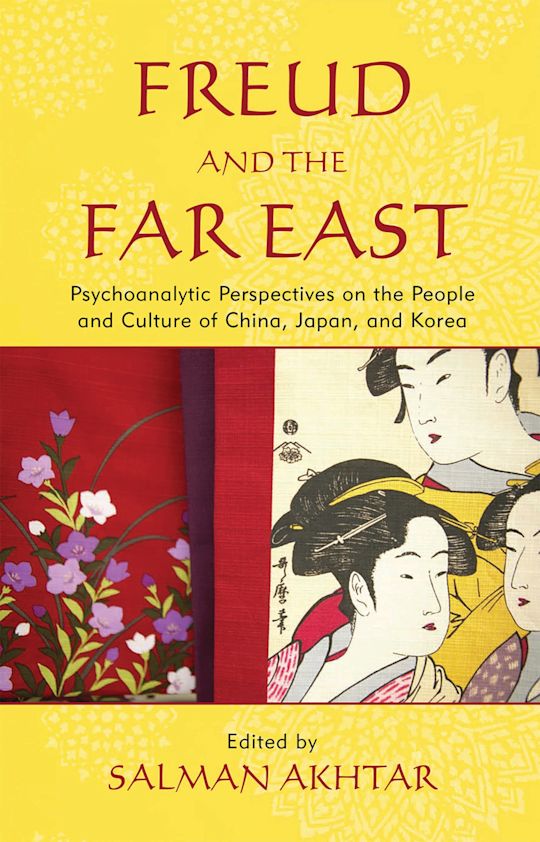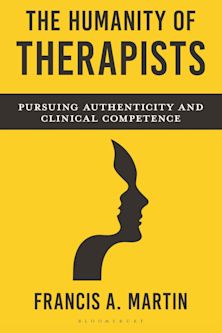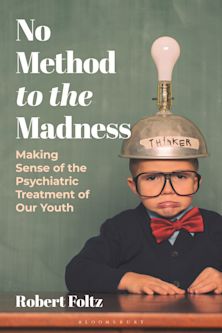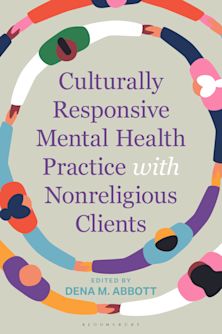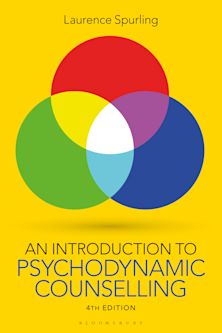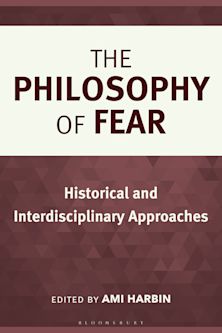- Home
- ACADEMIC
- Psychology
- Psychotherapy & Counselling
- Freud and the Far East
Freud and the Far East
Psychoanalytic Perspectives on the People and Culture of China, Japan, and Korea
Salman Akhtar (Anthology Editor) , June Cai (Contributor) , Lois Choi-Kain (Contributor) , June Chu (Contributor) , Daniel Freeman (Contributor) , Ming Dong Gu (Contributor) , Do-Un Jeong (Contributor) , Mikyum Kim (Contributor) , Douglas Kirsner (Contributor) , Osamu Kitayama (Contributor) , Heisaku Kosawa (Contributor) , Mark Moore (Contributor) , Monisha Nayar (Contributor) , Keigo Okinogi (Contributor) , Alan Roland (Contributor) , David Sachs (Contributor) , Elise Snyder (Contributor) , Yasuhiko Taketomo (Contributor) , Stuart Twemlow (Contributor) , Adeline van Waning (Contributor)
Freud and the Far East
Psychoanalytic Perspectives on the People and Culture of China, Japan, and Korea
Salman Akhtar (Anthology Editor) , June Cai (Contributor) , Lois Choi-Kain (Contributor) , June Chu (Contributor) , Daniel Freeman (Contributor) , Ming Dong Gu (Contributor) , Do-Un Jeong (Contributor) , Mikyum Kim (Contributor) , Douglas Kirsner (Contributor) , Osamu Kitayama (Contributor) , Heisaku Kosawa (Contributor) , Mark Moore (Contributor) , Monisha Nayar (Contributor) , Keigo Okinogi (Contributor) , Alan Roland (Contributor) , David Sachs (Contributor) , Elise Snyder (Contributor) , Yasuhiko Taketomo (Contributor) , Stuart Twemlow (Contributor) , Adeline van Waning (Contributor)
This product is usually dispatched within 1 week
- Delivery and returns info
-
Free US delivery on orders $35 or over
You must sign in to add this item to your wishlist. Please sign in or create an account
Description
This book is a lexical ambassador with the dual responsibility of bridging the West and East and enhancing psychoanalytic conceptualization in the course of such an encounter. By juxtaposing the familiar with the unfamiliar, it seeks to enrich our understanding of both. Within its pages, distinguished psychoanalysts from East and West weave a fine and colorful tapestry of the ubiquitous and idiosyncratic, the plebian and profound, and the neurotically-inclined and culturally-nuanced. They provide meticulous historical accounts of the development of psychoanalysis in Japan, Korea, and China and familiarize the reader with interesting personages, quaint phrases, cultural nuances, founding of journals, and emergence of groups interested in psychoanalysis. The contributors to the book discuss the depth-psychological concepts of amae, Wa, Ajase complex, and the "filial piety complex," thus underscoring the intricate interplay of drive and ego development with the powerful forces of ancestral legacies and their attendant myths and fantasies. The reverberations of these aesthetic and relational paradigms in epic love stories, martial arts, and cinema are also elucidated. In addition, the book offers insights into the psychosocial trials and tribulations of the Western immigrant populations from these countries and their offspring. Finally, the implications of all this to the conduct of psychotherapy and psychoanalysis are addressed.
Table of Contents
Part 2 Tales and Terrains
Chapter 3 1. Psychoanalysis in Japan
Chapter 4 2. Psychoanalysis in Korea
Chapter 5 3. Psychoanalysis in China
Part 6 Traditions and Transformations
Chapter 7 4. Two Kinds of Guilt Feelings: The Ajase Complex
Chapter 8 5. Amae: East and West
Chapter 9 6. Wa: Harmony and Sustenance of the Self in Japanese Life
Chapter 10 7. Psychoanalysis in the "Shame Culture" of Japan: A "Dramatic" Point of View
Chapter 11 8. The Butterfly Lovers: Psychodynamic Reflections on the Ancient Chinese Love Story, Liang-Zhu
Chapter 12 9. The Filial Piety Complex: Variations on the Oedipus Theme in Chinese Literature and Culture
Chapter 13 10. Transformation of Korean Women: From Tradition to Modernity
Chapter 14 11. The Food Sex Equation: Three Sizzling Movies from the Far East
Chapter 15 12. Zen, Martial Arts, and Psychoanalysis in Training the Mind of the Psychotherapist
Part 16 Transpositions and Techniques
Chapter 17 13. The Chinese-American Family
Chapter 18 14. Second Generation Korean-Americans
Chapter 19 15. An American-Japanese Transcultural Psychoanalysis and the Issue of Teacher Transference
Chapter 20 16. Naikan: A Buddhist Self-Reflective Approach
Chapter 21 17. Psychoanalytic Therapy Across Civilizations: Asians and Asian-Americans
Product details
| Published | Jun 29 2009 |
|---|---|
| Format | Hardback |
| Edition | 1st |
| Extent | 338 |
| ISBN | 9780765706935 |
| Imprint | Jason Aronson, Inc. |
| Dimensions | 9 x 6 inches |
| Publisher | Bloomsbury Publishing |
About the contributors
Reviews
-
Considering the place of East Asia from both sides of the couch, this long-overdue collection provincializes psychoanalysis from the perspectives of China, Japan, and Korea. Psychoanalytic inquiry can no longer afford to ignore some of the richest East Asian cultural traditions and theories of human relations-such as Buddhism, Confucianism, filial piety, and collective dependence-and those who embody them, 'over there' as well as 'over here.'
David L. Eng, PhD, Professor of English and Comparative Literature, University of Pennsylvania
-
Freud and the Far East: Psychoanalytic Perspectives on the People and Culture of China, Japan and Korea is enlightening, insightful, and relevant for a wide range of readers, and it has the potential to deeply change our stereotypes about clinical practices-not only in the Far East but across other diverse cultures around the world....Akhtar and his colleagues have greatly enhanced the richness of psychoanalytical theory and practice by linking psychoanalysis with its Easter influences....I strongly recommend including this book on the reading lists of clinical and abnormal psychology courses because of its strong focus on cultural diversity...
Shereen Abdel Kader, American Psychological Association
-
Salman Akhtar has edited a marvelous and thought-provoking exploration of psychoanalysis in the cultural context of China, Japan, and Korea. Unlike any other book, Freud and the Far East shows us the similarities and differences in psychoanalytic theory and clinical work between these three Asian countries. Building upon earlier edited books on psychoanalysis and India and Islam, Akhtar succeeds in illuminating not only how psychoanalysis historically evolved in a non-Western region, but also how some of the fascinating and creative ideas that emerged in the process enriched the psychoanalytic tradition.
Francis Lu, MD, Luke and Grace Kim Professor of Cultural Psychiatry, University of California at Davis
-
Freud and the Far East: Psychoanalytic Perspectives on the People and Culture of China, Japan and Korea is enlightening, insightful, and relevant for a wide range of readers, and it has the potential to deeply change our stereotypes about clinical practices-not only in the Far East but across other diverse cultures around the world....Akhtar and his colleagues have greatly enhanced the richness of psychoanalytical theory and practice by linking psychoanalysis with its Eastern influences....I strongly recommend including this book on the reading lists of clinical and abnormal psychology courses because of its strong focus on cultural diversity.
Shereen Abdel Kader, American Psychological Association









